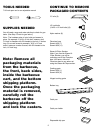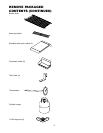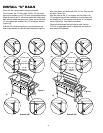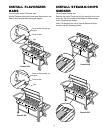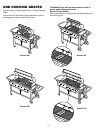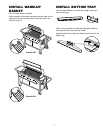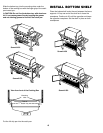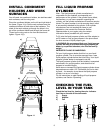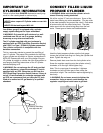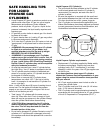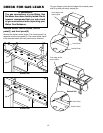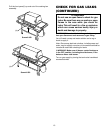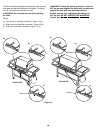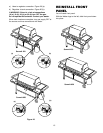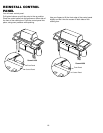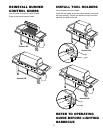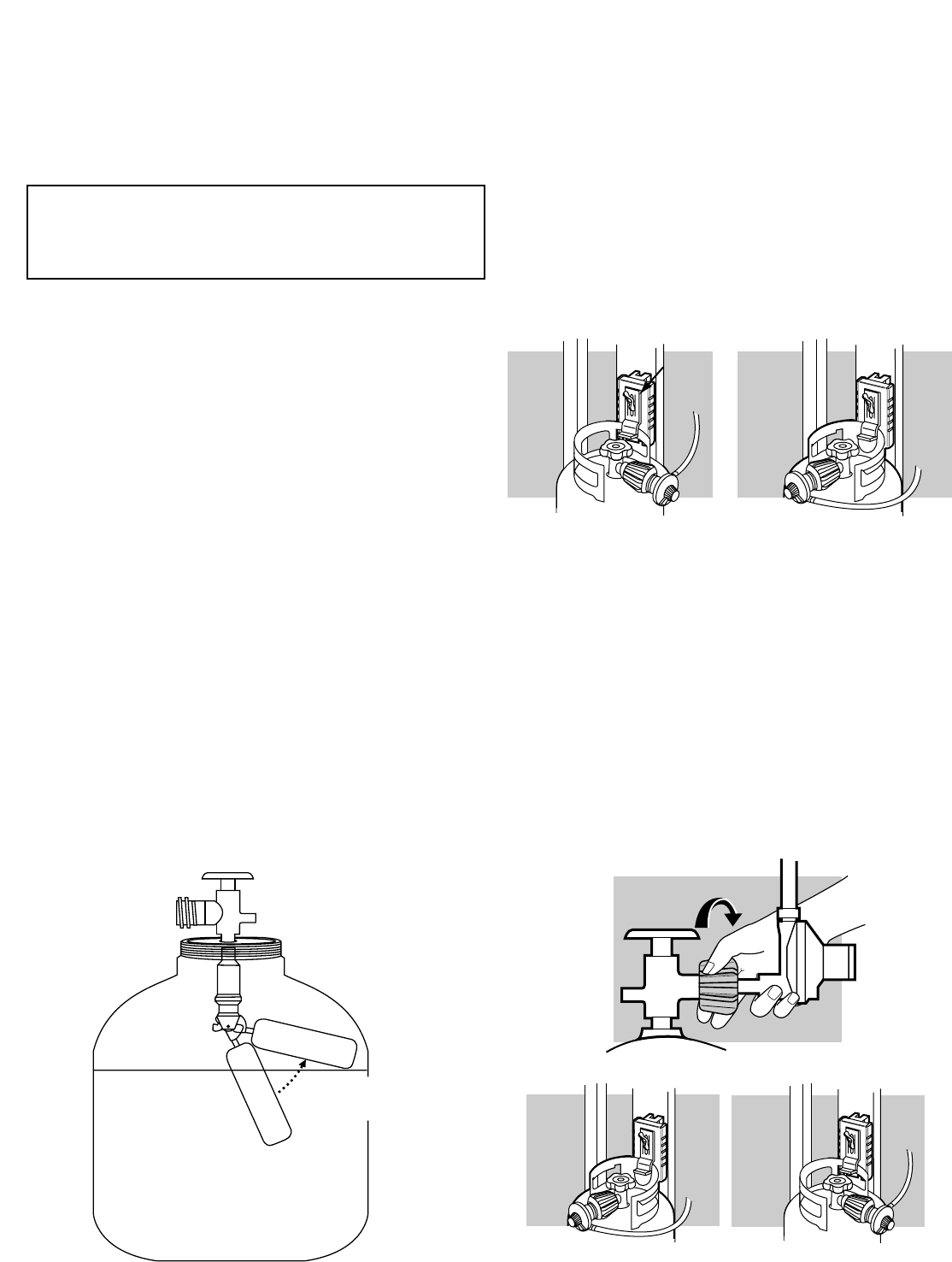
10
IMPORTANT LP
CYLINDER INFORMATION
Failure to follow these DANGER statements exactly may
result in a fire causing death or serious injury.
ƽDANGER
ƽNEVER store a spare LP Cylinder under or near this
barbecue.
ƽNEVER fill the tank beyond 80% full.
Your Weber gas grill is equipped with a cylinder
supply system designed for vapor withdrawal.
ƽWARNING: Only use this grill outdoors in a well-
ventilated area. Do not use in a garage, building,
breezeway or any other enclosed area.
The LP cylinder supplied with your barbecue is
equipped with an OPD (Overfilling Prevention Device)
and a QCC1 or Type 1 (CGA810) cylinder connection.
The cylinder connection is compatible with the
barbecue connection.
This is a secondary device to prevent the overfilling of
your LP cylinder. The proper filling methods for the filling
of your cylinder are by weight or volume, as described in
NFPA 58. Please make sure your filling station fills your
LP cylinder by weight or volume. Ask your filling station to
read purging and filling instructions on the LP cylinder
before attempting to fill.
ƽWARNING: Do not exchange the LP tank provided
with your barbecue, unless the exchange LP tank is
equipped with an OPD. Otherwise you will lose the
OPD (Overfilling Prevention Device) feature. If there is
not an LP tank available for exchange equipped with
an OPD, we recommend that you have your LP tank
filled at an authorized LP gas dealer by a qualified
attendant.
Raises up while filling
then stops when full.
CONNECT FILLED LIQUID
PROPANE CYLINDER
ƽ WARNING: Make sure that the cylinder valve is
closed. Close by turning clockwise.
We utilize various LP tank manufacturers. Some of the
tanks have differing top collar assembles. (The top collar
is the metal protective ring around the valve.) One series
of tanks mount with the valve facing front. The other
tanks mount with the valve facing away from the fuel
scale. These types of tanks are illustrated below.
Hook the liquid propane cylinder onto the fuel gauge.
Loosen the cylinder lock wing nut. Swing the cylinder lock
down. Tighten the wing nut.
Remove plastic dust cover from the fuel cylinder valve.
Screw the regulator coupling onto the cylinder valve(1),
clockwise, or to the right. Hand tighten only.
Note: This is a new type of connection. It tightens
clockwise and will not allow gas to flow unless the
connection is tight. The connection requires tightening by
hand only.
ƽ WARNING: Do not use a wrench to tighten the
connection. Using a wrench could damage the
regulator coupling and could cause a gas leak.
(1)



